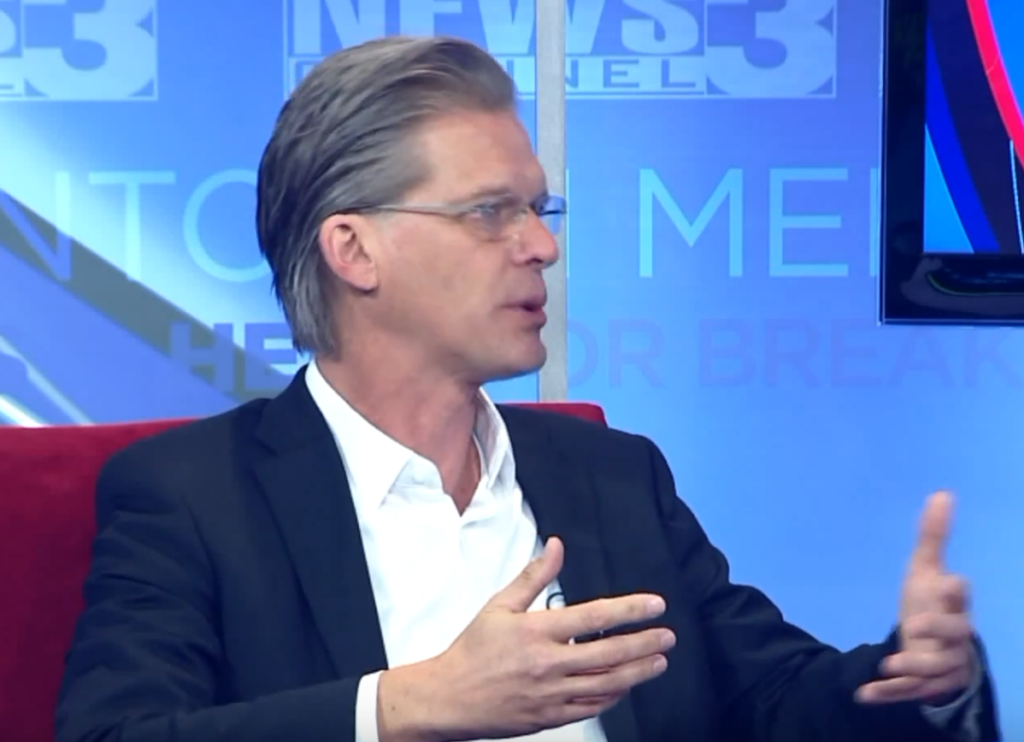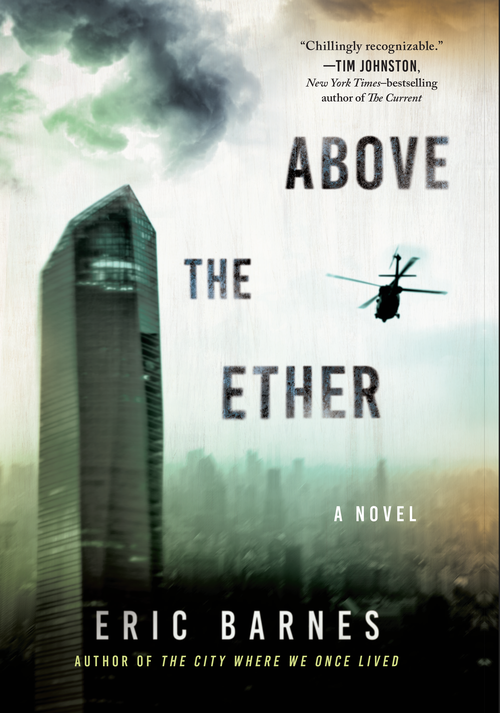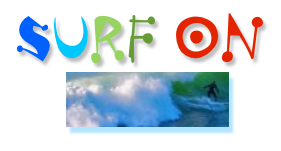
This blog posts on Mondays. Fourth Mondays of the month I devote to a Q & A with a fellow writer.

It was about a decade ago that I first came across Eric Barnes‘ work, when we both had novels with Unbridled Books– his was a dark comedy about high tech, Shimmer. Now I am delighted to learn about his latest, just out from Arcade Publishing: Above the Ether. It promises to be an exceptionally good read. Booklist says: “Barnes’ spare and chilling prose flows from one horrific scene to another without, surprisingly, alienating his readers, perhaps because the heart of his narrative ultimately reveals an abiding faith in the power of human compassion. A first-rate apocalyptic page-turner.”
In addition to penning four highly regarded novels, Barnes is CEO of The Daily Memphian, The Daily News, The Nashville Ledger, The Knoxville Ledger, and The Hamilton County Herald, and host of Behind the Headlines on WKNO TV. Visit his website to read more.

From the catalog copy:
A mesmerizing novel of unfolding dystopia amid the effects of climate change in a world very like our own, for readers of Emily St. John Mandel’s Station Eleven and Margaret Atwood’s The Year of the Flood.
In this prequel to Eric Barnes’s acclaimed novel The City Where We Once Lived, six sets of characters move through a landscape and a country just beginning to show the signs of cataclysmic change. A father and his young children fleeing a tsunami after a massive earthquake in the Gulf. A woman and her husband punishing themselves without relent for the loss of both their sons to addiction, while wildfires slowly burn closer to their family home. A brilliant investor, assessing opportunity in the risk to crops, homes, cities, industries, and infrastructure, working in the silent comfort of her office sixty floors up in the scorching air. A doctor and his wife stuck in a refugee camp for immigrants somewhere in a southern desert. Two young men working the rides for a roadside carnival, one escaping a brutal past, the other a racist present. The manager of a chain of nondescript fast-food restaurants in a city ravaged by the relentless wind.
While every night the news alternates images of tsunami destruction with the baseball scores, the characters converge on a city where the forces of change have already broken—a city half abandoned, with one part left to be scavenged as the levee system protecting it slowly fails—until, in their vehicles on the highway that runs through it, they witness the approach of what looks to be just one more violent storm.
––Catalog copy for Above the Ether by Eric Barnes
C.M. MAYO: What inspired you do write Above the Ether?
ERIC BARNES: Above the Ether is the prequel to my previous novel, The City Where We Once Lived, but I wrote them out of order. In fact, the plots of the two books essentially happen simultaneously. But I didn’t have the idea for Above the Ether until I’d finished City.
The City Where We Once Lived is about a city that’s been abandoned and the few thousand people who have chose to live there. The city in that novel has been devastated not by a plague or some virus, but by bad decisions, inattention, abandonment. All animals have fled, all the plants and trees have died.
The main character in City assumes that everyone, everywhere lives with this sort of death of plants and animals. But toward the end of the novel, a new person comes to the city. And, very off-handedly, he tells the main character why he’s fled his home and come to this city.
The animals that left this place, they didn’t all just die. They went to other places. Like the city we are from. Huge packs of dogs. Feral cats. The failed efforts of the city to wipe them out with poison, so many dead animals that they had to leave carcasses in piles on corners and overflowing from dumpsters and still the animals roamed the street.
“What you have in rain,” the man’s friend is now saying, “others have in heat and drought. Rivers turned to creeks or dried up completely. Lakes emptied of water, now dead valleys or dry plains. Uncontrollable fires and not just in the forests. Whole neighborhoods destroyed on the edges of big cities. Hillsides that should have never been occupied, even before the drought began, finally the fires could not be stopped, so that now those hillside neighborhoods are turned black and white, burned flat to the ground, they look like the landscape of some moon.”
And so I started Above the Ether with that idea.
In neither City nor Above the Ether did I want to write a novel about a plague or virus wiping out humanity. I didn’t want to write about an apocalypse, though both books do feel apocalyptic.
Instead, I wanted to take mostly real, actual events and phenomenon and push them just slightly. In other words, what if Detroit had actually failed a decade ago? What if New Orleans never recovered from Katrina? What if the flooding in Thailand or Japan had happened in a country that felt the US? What if all the slow-motion environmental and societal problems – and disasters – that happen over years or decades were instead pressed together into one novel?
So the novels are very much fiction. But they are based mostly on things that have very clearly already happened.
C.M. MAYO: If a reader were to take away one sentence (or two or three) from this novel, which would you suggest, and why?
ERIC BARNES: I think it would be this passage:
A theater, nearly two hundred years old, is easily torn down. Rotted anyway. From the rainfall that poured for so many years through the gilded dome of a towering ceiling.
The musicians who had played there, the actors and actresses who once performed, the speeches long ago delivered, poetry read aloud, movies played. Funds were raised; during the war the stage was lined with beds.
Now gone.
Memories offer no protection. They are only a series of moments that happened in the past.
Above the Ether is very much about how people abuse and abandon places. Cities particularly, but places – such as theaters – within those cities or rural towns. Farmland. We abandon these places. It’s not about plagues and viruses. It’s about choices.
C.M. MAYO: Can you talk about which writers have been the most important influences for you?
ERIC BARNES: These days, I think the most influential writers on what I’m writing are some combination of Kurt Vonnegut, Cormac McCarthy and Annie Dillard. There are many others. But those are the ones I think of most often.
Vonnegut and his ability to bridge genres – from literary fiction to science-fiction to genres of his own creation – as well as mixing fictional and non-fictional elements so incredibly.
McCarthy’s Blood Meridian changed my whole perspective on reading and writing. The beauty of the writing, the unapologetic violence of the characters, the structure of the novel. It was otherworldly for me, in so many ways.
For the Time Being by Annie Dillard was another book that changed my whole sense of what could be written. The way she shifts time and moves through characters and combines narrative and poetic elements – all without being self-conscious or pretentious – was just amazing.
Then there were the short stories of Raymond Carver and Richard Ford, mostly because they wrote about the kind of people I knew growing up. In my early 20s, all I wanted to do was forget so many of the people I’d been around as a child. But the Carver and Ford short stories made me realize that actually what I wanted – and needed – to do was write about the people I knew growing up.
C.M. MAYO: Which writers are you reading now?
ERIC BARNES: I tend to read a lot of non-fiction, actually, especially narrative non-fiction about scientific issues. So I love David Quammen’s books about island bio-geography and the history of the discovery of evolution are fascinating to me.
C.M. MAYO: Your day job is news. Is this something you find helpful or challenging (or both) for you as a novelist?
ERIC BARNES: Helpful, mostly. The assimilation of so much information in a mostly objective way – that’s what I was after with Above the Ether. Honestly, although I didn’t intend to do this at the outset, much of Above the Ether is written in a non-fiction narrative style.
C.M. MAYO: You have been a productive creative writer for many years. How has the Digital Revolution affected your writing? Specifically, has it become more challenging to stay focused with the siren calls of email, texting, blogs, online newspapers and magazines, social media, and such? If so, do you have some tips and tricks you might be able to share?
ERIC BARNES: My advice is to turn it all off when you write. Phone. Email. Everything. I write on a computer, but have to be sure all the alerts and notifications are off. Not just emails and the Web, but even alerts about software updates and battery life. Everything. Even the word processor I use, I have it set up so all the toolbars and menus and everything else is hidden. I just want a blank white page on which I can type.
Otherwise, the distractions are deadly.
“My advice is to turn it all off when you write.
Phone. Email. Everything.”
C.M. MAYO: Another question apropos of the Digital Revolution. At what point, if any, were you working on paper? Was working on paper necessary for you, or problematic?
ERIC BARNES: Early on, I wrote my first short stories on paper. But very soon I switched to writing on a computer – this big, clunky machine that weight 30 pounds and that I’d gotten from my mom’s office.
However, then and now, I constantly print out the pages I’ve written and read them on paper, editing them with a pencil. I edit that way almost exclusively. (On the computer, I edit only lightly.) So that means that, on the printed pages, I’m adding words, sentences, whole sections – most of which is written in the margins, but some of which I write on the back sides of printed pages. I even re-order whole chapters on paper (using a crazy-to-anyone-else numbering system I’ve used for years). This means that after a week or two of handwriting my edits, I’ll have many, many pages that I then have to re-type into the computer. But even that is a new chance to read and re-read what I’ve written (and re-written).
I will also often take the printed pages and lay them out side by side on a table or the floor. I like to look at and read whole chapters that way – 15 to 20 pages all laying side by side.
C.M. MAYO: If you could go back in time and give your 30 year-old self some writerly advice, what would be the standout piece?
ERIC BARNES: Wow. So many things. Most of which can’t (or shouldn’t) be shared publicly because they involve the business side of publishing.
One thing I will say: I’ve had six agents in my life. That’s way, way too many. A couple of them – my current agent very much topping the list – have been great. The others were awful. Not truthful, not transparent, no integrity. My 30-year-old self was far too happy just to have an agent. I should have been much more demanding of them and careful in who I trusted.
I will also say that at 30 years old, I’d finished three novels, but none had been published. It was maddening. But I kept at it. And I kept editing and re-writing. And, in some cases, I gave up on work I’d spent years writing. Which was necessary.
C.M. MAYO: What’s next for you as a writer?
ERIC BARNES: I’m mid-way through another novel, roughly taking place in the same world as Above the Ether and The City Where We Once Lived. Some of it’s actually pretty good. Some of it is really in need of more work.
But right now I’m focused on supporting Above the Ether. By the fall, I’ll be deep into that novel, trying to make it work the way it should.

Q & A with Amy Hale Auker, Author of Ordinary Skin: Essays from Willow Springs
Five Techniques for a Journey to Einfühlung
Notes on Tom Lea and His Epic Masterpiece of a Western, The Wonderful Country
Find out more about C.M. Mayo’s books, shorter works, podcasts, and more at www.cmmayo.com.

